- Home
- Captain W E Johns
55 No Rest For Biggles
55 No Rest For Biggles Read online
BIGGLES CONSIDERED the faces round the table of the
high-level Court of Enquiry appointed to investigate the disappearance, over Africa, without trace, of three aircraft within a few weeks. Two were civil machines, air-liners of regular services; the other, the last, was a Hastings of R.A.F. Transport Command. He had been called to the conference room for expert opinion, but as this had not so far been sought he had merely listened to arguments which, almost without exception, favoured the "accident" theory in one form or another.
At last the President addressed him directly. "Inspector Bigglesworth, do you concur in the view that these machines were lost through accident?"
"No. sir," answered Biggles, quietly but firmly.
The President looked uncomfortable. "You think there can be no question of structural failure."
With all eyes on his face Biggles answered: "That is what I think, sir."
"Not even in phenomenal air turbulence?"
"There's no record that such conditions were encountered."
"But if they had been?"
"The radio operator would have reported them." "There might not have been time."
5
"All I can say to that, sir, is, I do not believe that three practically new machines of different types, each with a proved record of efficiency, and an ample margin of safety, could break up in the air, completely, in any weather conditions. Such a thing has never happened in my experience and I've flown through weather as bad as it's possible to imagine. That it could happen three times within a few weeks introduces a coincidence factor no practical pilot would entertain."
"Very well. Let us say that it was not an accident. What is the alternative?"
"Sabotage, sir."
"You think these machines were tampered with on the ground before they took off?"
"That could be the answer, sir. I wouldn't know. Something could have happened in the air. There may not have been sabotage in the strict sense of the word; but there must have been interference of some sort, somewhere. Those machines were forced down."
There was a stir round the table. The President frowned. "You seem very definite about it."
"I am, sir."
"Why?"
"You have asked for my opinion, sir, and I have given it to you."
"Have you anything in mind to support such an opinion?"
"Yes, sir. In the first place not one of these machines was on course when it disappeared."
"Are we sure of that?"
"Quite sure. Every inch of the routes has been searched. Had a machine, or the wreckage of one, been there, it would have been found. Experienced pilots, military or civil, don't lose their way on a straight run in fine weather. That three could do it in quick 6
succession would again be stretching coincidence beyond the point where I could accept it."
"You're rather fond of this word coincidence !"
"Only in the negative sense. It's because I don't trust coincidence that I consider it one of the governing factors of these disappearances. We meet it at every turn."
"How?"
"Was it coincidence that in every case the aircraft was carrying a Very Important Person—bearing in mind that other machines, without such persons on. board. went through on schedule?"
"What you are saying is, you believe these machines were forced down on account of certain V.I.P.'s who were travelling in them."
"That is exactly what I am saying, sir."
"Do you think they could have been shot down?" "No. sir."
"Why not?"
"Because except for the unlikely event of the radio operator being hit by the first shot he would have flashed a signal saying what was happening. Ile would be on his very high frequency and in touch with control operators."
"What about a guided missile?"
Biggles smiled cynically. "No, sir. I know there have been demonstrations; but it's one thing to hit a pilotless aircraft flying low on a known, straight course; to hit a machine flying high on a course that has to be anticipated, or estimated, is a different matter. In any case, the employment of such a weapon, even if successful, would have resulted in the total loss, by fire. of the aircraft when- it crashed. Of what possible use,. to the people responsible, could that be?"
"Well, by killing him. it would deny us the services of the specialist travelling in the machine."
7
"If that was the object, why go to all the trouble? Surely it would be easier to kill him, or kidnap him, on the ground. It would be more advantageous to a potential enemy to have the man's portfolio undamaged. I assume it would contain documents of a secret nature."
The President looked puzzled. "Can you think of any method, excluding guns, and direct sabotage, by which these machines could have been forced to land?"
Biggles thought for a Moment. "I think there must have been two devices employed, sir.
One would be necessary to take the machine off its course, and the other to bring it down. There has been talk of weapons that could do that—such as some sort of ray to cut the ignition system; but as far as I know they have yet to be invented. It's a possibility that can't be entirely ruled out. There has also been talk of causing an aircraft to fly into an area of lethal gas, with fatal results to the crew, or the power units, which rely on air for combustion. This, of course, is only surmise. But I can't forget that the lost machines were four-engined types that could climb on three engines and hold their altitude on two.
Are we to believe that on three separate occasions four engines could cut out simultaneously—by accident?"
"Your theory would require the height and course of the machine to be known."
"Anyone with very high frequency radio might learn that because the operator in the aircraft would from time to time report his position. But that would not be vital to the scheme. A machine might be made to fly into a trap by interference with its compass.
That is possible, and I suspect it happened, for I can think of no other reason why three experienced pilots should be off course. They couldn't have left Africa so they 8
must still be there—unless they were burnt or otherwise destroyed to get rid of them.
The people responsible would hardly want the machines. I fancy they wanted what was in them. They carried nothing of intrinsic value. The last machine carried only the personal luggage of the travellers."
"A project on such a scale could hardly be handled by an individual."
"That's why I believe it to be the work of a potential enemy."
A parliamentary representative looked incredulous. "Are you suggesting that a foreign government has established a secret base in Africa?"
"Why not?"
"That's a serious allegation."
"I can think of foreign governments that have done more serious things."
The President resumed. "What do you suppose has happened to the passengers?"
"Unless they were murdered in cold blood after they landed, which seems unlikely, they are still alive. I have given you my reasons why I think the machines were forced to land as opposed to being crashed."
"But could they have landed?"
"If my theory is correct the action that forced them down would have taken place within gliding distance of a possible landing ground. Having got down, the crews and passengers, not suspecting foul play, wouldn't attempt to hide. They would assume anyone they met to be friendly; which, I think, was not the case. Suspecting what I do, I'd behave differently."
"Before that could happen you'd have to find the place," observed a member, cynically. -
"That might be a difficult, but not impossible undertaking," returned Biggles evenly.
The President looked doubtful. "Assu
ming this base
9
exists. can you think of any way you might locate it, bearing in mind the nature of the country, particularly on the West Coast route?"
"It won't be observable from the air, we may be sure of that," answered Biggles. "My first step would be to confirm that the machines were not off course through the inefficiency or negligence of the crews."
"How would you do that?"
"If I am to undertake a search, sir, I'd prefer not to discuss the technical aspect of it outside my Operations Room."
"There seems to be some risk of your running into the same trap as the lost machines."
"Possibly, sir. but there would be this difference." Biggles smiled faintly. "I'd know I was running into trouble. The lost pilots did not."
"That knowledge might not save you."
"Perhaps not. But I should see to it that someone knew where I was going."
There was a pause, and a rather uncomfortable silence. The President looked round the table. He cleared his throat. "Well, gentlemen, that seems to be as far as we can get for the moment," he observed. "As Inspector Bigglesworth has such strong views on the matter under discussion I suggest we adjourn the conference until he is able to produce concrete evidence to support his opinion. Has anyone anything more to say?"
There was no answer.
"Very well," said the President, rising. "Let us leave it at that. Air-Commodore Raymond will, no doubt, let us know of any development."
Lighting a cigarette Biggles walked slowly back to his office, where he found Algy, Bertie and Ginger, waiting for him. They looked up expectantly. "Well, how did it go?"
asked Ginger.
to
"Much as I expected," replied Biggles, dropping into a chair. "I was up against the old snag of trying to make people believe what they didn't want to believe. I fancy they were hoping I'd say the machines got off their course by accident, because any alternative sets an even stickier problem; one they'd rather dodge —at least, the political people."
"You mean the international angle," murmured Algy.
"Yes. In the circumstances they could only adjourn the meeting until I dig out something solid to support my theory."
"How much did you tell 'em, old boy," asked Bertie.
"No more than I could help, you may be sure. Politicians are no more discreet in their nattering than anyone else."
"I take it this means we're going to Africa," put in Ginger.
"We -shan't find these machines anywhere else. Frankly, I hope my theory's wrong, because if it's right, before we've finished bullets are likely to be flying."
"That's top-hole, old boy," observed Bertie cheerfully. "We've been shot at before."
"It isn't the thought of being shot that worries me," returned Biggles. "It's the stink that certain people will kick up if we happen to shoot somebody,"
"Stinks never killed anybody," asserted Algy. "Let's wait till we've got a corpse on our hands before we start sniffing."
The door opened and the Air-Commodore walked in. Looking at Biggles half reproachfully he remarked: "I'm afraid you've started something."
"I don't see that you've anything to be afraid of,
sir," returned Biggles. "I'm the one who'll get the dirty 11
end of the stick if we find ourselves in the mud. Moreover, I haven't started anything. It was the saboteur who scuppered the machines who pushed the starter."
"All right. How are you going to find him? I wasn't happy to hear you commit yourself to that."
"Nobody was happy. The conference was scared stiff. Because why? Because they knew thundering well I was right. Some of 'em don't want these machines found for fear of an international rumpus. That's why I wouldn't tell 'em how I was going to do it. I could have said a lot more than I did."
"Perhaps you wouldn't mind telling me."
"Fair enough, sir. This talk of a secret base. I glossed over it because I don't believe it. A base is static. The thing that's causing the mischief is mobile. I say that for this reason.
The first two machines were lost on or near the East Coast route. We can forget them.
The trail's stone cold. The last machine went down in West Africa. If the same device was used it must have been moved there—unless the enemy has got bases all over the place, which I can't believe, or native rumours would have reached the ears of district officers. Make a note that if this secret weapon is mobile we can expect the racket to continue. Let's have another look at the last case." Biggles got up and went over to the wall map.
"A high-ranking American general, with his assistants, who had been over the Far and Middle East looking for military bases, was at Aden when he had an urgent call to return to America for a conference. He decided that the quickest way he could get there was to fly across Africa to Dakar, from where he could catch the regular U.S. service home via the Azores. We laid on a machine for him, the route being Khartoum—Kano—Dakar.
The aircraft was on schedule as far as Kano in Nigeria but it never got to Dakar. Somewhere on that section it got off course, which means that it could be in Nigeria, French West Africa, Dahomey, Sierra Leone or Liberia—all nice countries to get lost in. Word of this trip was reported in the press. In the aircraft were not only the general and his staff but portfolios containing the results of conferences and investigations over half the world. A nice prize for a potential enemy to pick up. If the machine and everything in it was burnt up in a crash it would be tough on the general; but if those documents fell into the wrong hands it could be tough on a lot of people.
Wherefore the enemy would go to some trouble to get them. That's how I see it. It isn't likely to end there. With half the statesmen, generals, scientists and what have you, tearing round the world in aircraft, it's only a question of time before it happens again—unless we can stop the rot."
"Go on," requested the Air-Commodore. "At the meeting, you suggested you might be able to find the missing machine."
"If we act fast we might find the device that brought it down, which is more important; it might still be hiding where it last went into action, waiting for fresh orders."
"How would you go about it?"
"There's another V.I.P. hurrying home from the Far East to attend the same conference in Washington. He will take the same route."
"I didn't know that."
Biggles smiled. "Neither did I until a few minutes ago. Maybe I'm flattering myself, but on this occasion I shall be the V.I.P. And in case the enemy should feel that I'm not important enough to bother about we'd better dig up a more impressive rank and name. I shall fly the machine myself and the only passenger will be Ginger."
13
"What do you hope to gain by that?"
"Some information. In addition to the usual compass I shall have another, heavily insulated in lead. That will enable me to keep a check on the standard instrument. Should that start to deviate I- shall know that the enemy is on the job. That alone would confirm that the missing machines were not lost by accident but by deliberate design."
"Then what?"
"I'd follow the course as indicated by the standard compass. That should give me a line on the course taken by the lost Hastings. In fact, in following that course I might see it—or what's left of it."
"That would be taking a risk of disappearing yourself."
"If I failed to follow that course the people operating the device, whatever that might be, would smell a rat—guess their racket, had been rumbled."
"What machine are you going to use for this experiment?" the Air-Commodore wanted to know.
"The lost aircraft was a Hastings Mark IV of Transport Command, specially designed with all the trimmings for V.I.P.s. They have some more. We'd better borrow one—if you can manage it."
"They'll take a dim view of that. Having lost one they'll take an even dimmer view if they lose another."
"So shall I," declared Biggles. "But it's no use fiddling with a job of this size. We should be wasting our
time if we tried to kid the enemy that a V.I.P. and his staff were risking their precious necks crossing Africa in an obsolete kite."
"You'll need a lot of room to put a Hastings on the carpet—should it come to that."
"For reasons I've already explained there should be room. The people working this set-up can't be interested in making bonfires of aircraft. When they want a 14
V.I.P. they want him whole, not in bits and pieces scattered over the landscape. I'm willing to stake my neck on that."
"All right. I'll see what I can do."
"You might point out to the Ministry that apart from the machine I'm hoping to find two of their best pilots. Blokes like Tony Wragg and Vic Roberts, with ten thousand or more hours logged, are not to be picked up in the gutter outside the Air House."
The Air-Commodore smiled lugubriously. "I'll try it," he consented. "But for heaven's sake be careful what you get up to."
"In this case it's nacre likely to be what I get down to," answered Biggles.
"'Either way, up or, down, be careful."
Biggles sighed. "I'm always careful, sir. You know that. Why do you suppose I'm still alive?"
"I sometimes wonder," said The Air-Commodore, soberly, and went out.
"Now let's get down to work," Biggles told the others, briskly.
FIVE DAYS after the conference, a Hastings aircraft, after refuelling, took off from the parched airfield at Kano and, climbing steadily for height, took up a course for Dakar, the great air junction in French Senegal on the West Coast of Africa. Biggles was at the controls. Ginger occupied the second pilot's seat beside him. There was no one else.
This was, of course, the vital stage of Biggles's hastily prepared plan to locate the missing Hastings, now known as Operation Lex. The Air-Commodore had managed to get the aircraft Biggles wanted. He had also arranged for a communique to appear in the press to the effect that Colonel Rayle, one of Britain's leading military engineers, was on his way from the Middle East to America, via Dakar, to attend a United Nations meeting at Washington.
After working day and night to get his plan cut and dried Biggles had rushed the aircraft out to Egypt by the Mediterranean route hoping to arrive in the danger area before the enemy operatives, who were, he was convinced, behind the mystery, departed for fresh fields of activity. The only thing carried by the Hastings outside its normal equipment was an insulated compass, detachable so that it could be jettisoned to prevent it from being seen by the unknown enemy

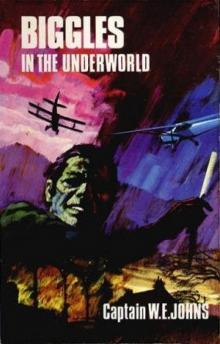 Biggles in the Underworld
Biggles in the Underworld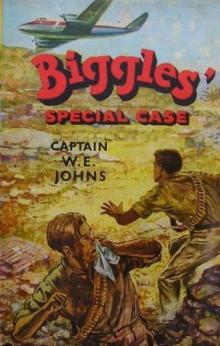 Biggles' Special Case
Biggles' Special Case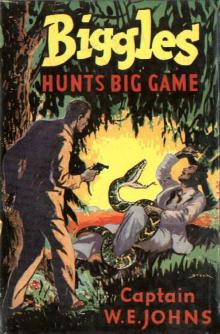 34 Biggles Hunts Big Game
34 Biggles Hunts Big Game 03 Now To The Stars
03 Now To The Stars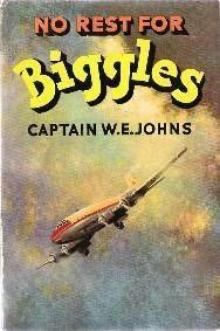 55 No Rest For Biggles
55 No Rest For Biggles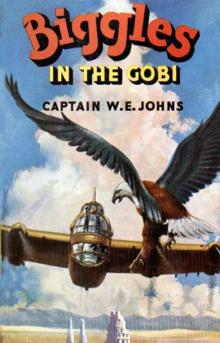 46 Biggles in the Gobi
46 Biggles in the Gobi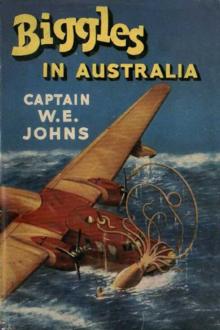 52 Biggles In Australia
52 Biggles In Australia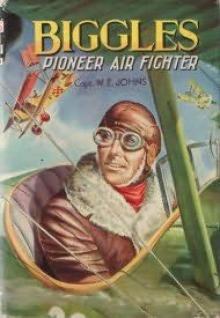 51 Biggles Pioneer Air Fighter
51 Biggles Pioneer Air Fighter 05 Biggles Flies East
05 Biggles Flies East 28 Biggles In Borneo
28 Biggles In Borneo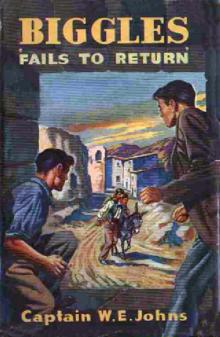 29 Biggles Fails to Return
29 Biggles Fails to Return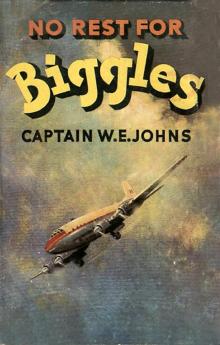 55 No Rest For Biggles (v2)
55 No Rest For Biggles (v2)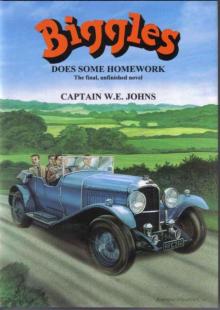 Biggles Does Some Homework
Biggles Does Some Homework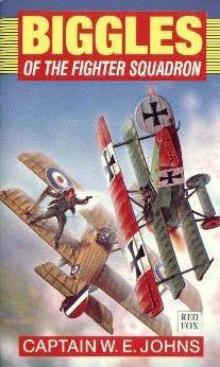 Biggles of the Camel Squadron
Biggles of the Camel Squadron 35 Biggles Takes A Holiday
35 Biggles Takes A Holiday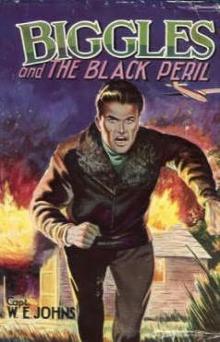 Biggles And The Black Peril (06)
Biggles And The Black Peril (06)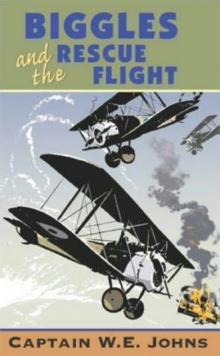 17 Biggles And The Rescue Flight
17 Biggles And The Rescue Flight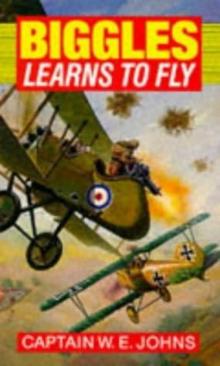 Biggles Learns To Fly
Biggles Learns To Fly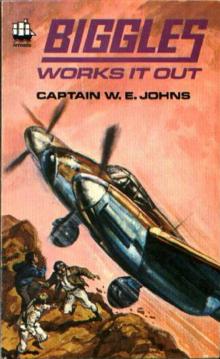 40 Biggles Works It Out
40 Biggles Works It Out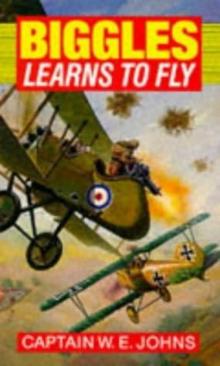 05 Biggles Learns To Fly
05 Biggles Learns To Fly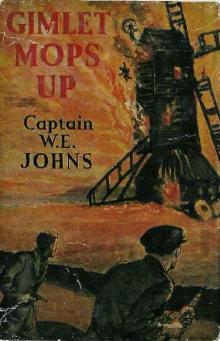 04 Gimlet Mops Up
04 Gimlet Mops Up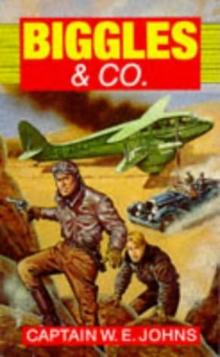 10 Biggles and Co
10 Biggles and Co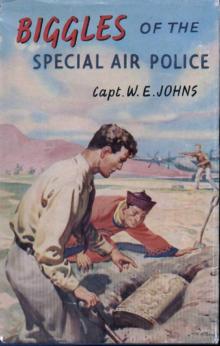 47 Biggles Of The Special Air Police
47 Biggles Of The Special Air Police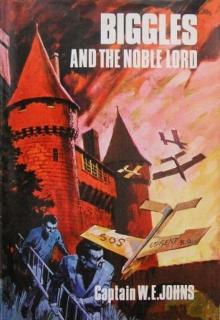 Biggles and the Noble Lord
Biggles and the Noble Lord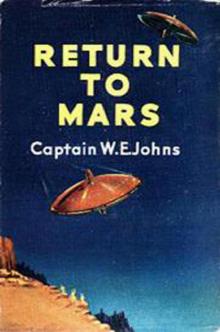 T2 Return To Mars
T2 Return To Mars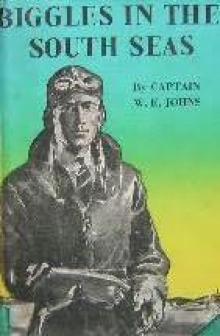 21 Biggles In the South Seas
21 Biggles In the South Seas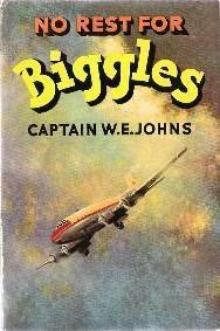 No Rest For Biggles
No Rest For Biggles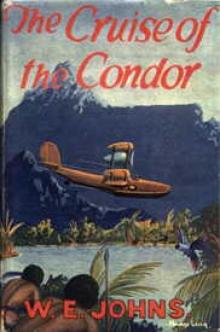 Biggles In The Cruise Of The Condor (02)
Biggles In The Cruise Of The Condor (02)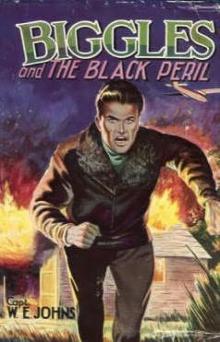 06 Biggles And The Black Peril
06 Biggles And The Black Peril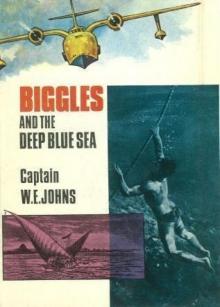 Biggles and the Deep Blue Sea
Biggles and the Deep Blue Sea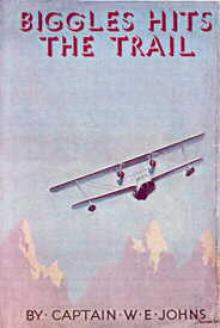 06 Biggles Hits The Trail
06 Biggles Hits The Trail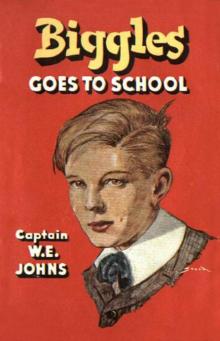 39 Biggles Goes To School
39 Biggles Goes To School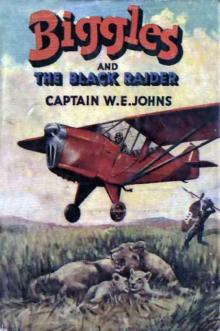 44 Biggles and the Black Raider
44 Biggles and the Black Raider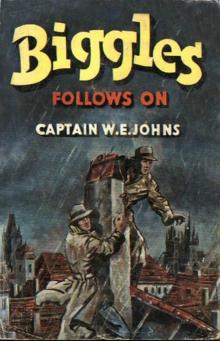 42 Biggles Follows On
42 Biggles Follows On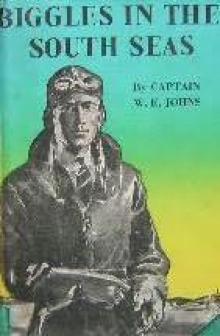 Biggles In the South Seas
Biggles In the South Seas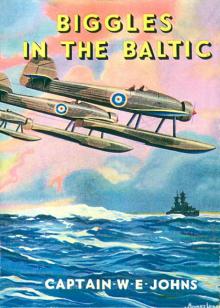 21 Biggles In The Baltic v3
21 Biggles In The Baltic v3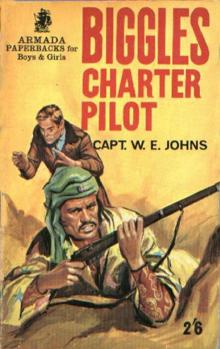 27 Biggles - Charter Pilot
27 Biggles - Charter Pilot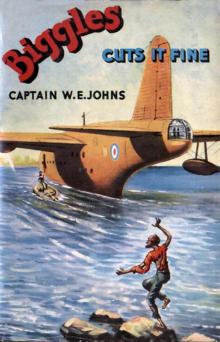 49 Biggles Cuts It Fine
49 Biggles Cuts It Fine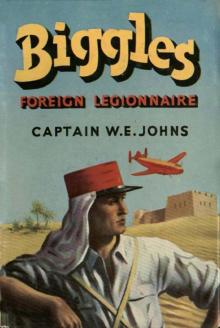 51 Biggles Foreign Legionaire
51 Biggles Foreign Legionaire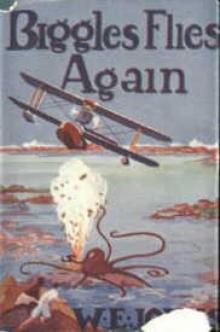 04 Biggles Flies Again
04 Biggles Flies Again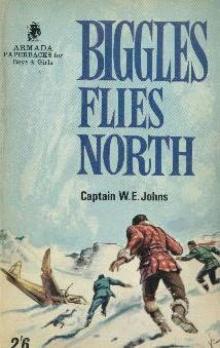 16 Biggles Flies North
16 Biggles Flies North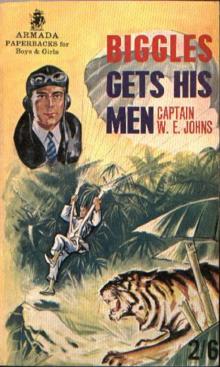 37 Biggles Gets His Men
37 Biggles Gets His Men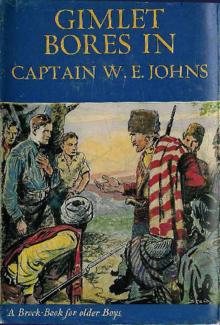 07 Gimlet Bores In
07 Gimlet Bores In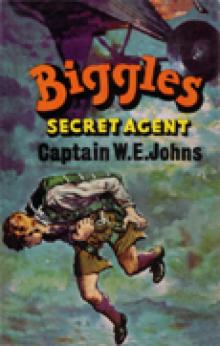 19 Biggles Secret Agent
19 Biggles Secret Agent 32 Biggles In The Orient
32 Biggles In The Orient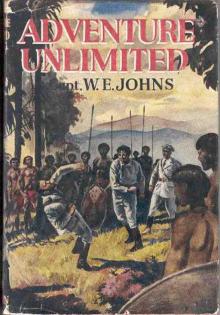 Adventure Unlimited
Adventure Unlimited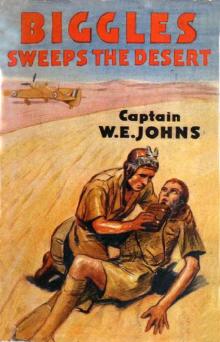 26 Biggles Sweeps The Desert
26 Biggles Sweeps The Desert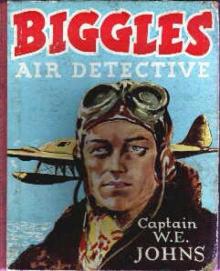 Biggles Air Detective (43)
Biggles Air Detective (43) 36 Biggles Breaks The Silence
36 Biggles Breaks The Silence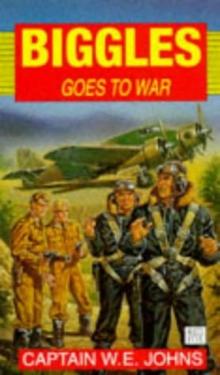 14 Biggles Goes To War
14 Biggles Goes To War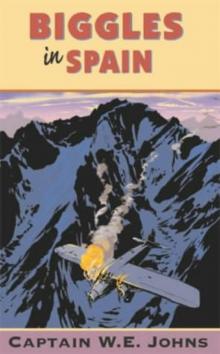 18 Biggles In Spain
18 Biggles In Spain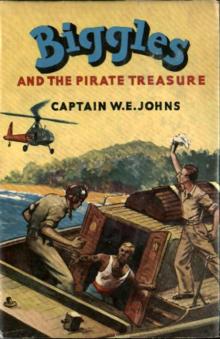 50 Biggles and the Pirate Treasure
50 Biggles and the Pirate Treasure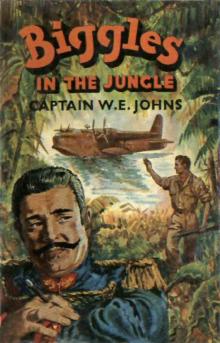 25 Biggles In The Jungle
25 Biggles In The Jungle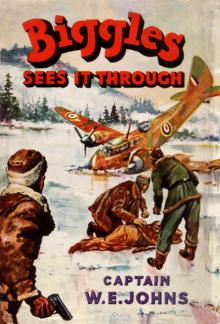 23 Biggles Sees It Through
23 Biggles Sees It Through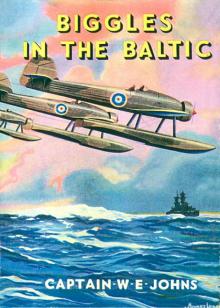 21 Biggles In The Baltic
21 Biggles In The Baltic 24 Spitfire Parade
24 Spitfire Parade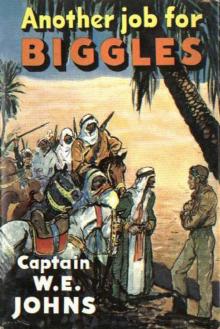 38 Another Job For Biggles
38 Another Job For Biggles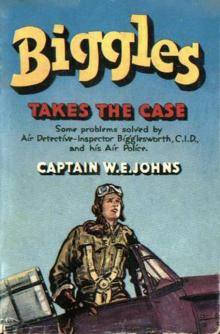 41 Biggles Takes The Case
41 Biggles Takes The Case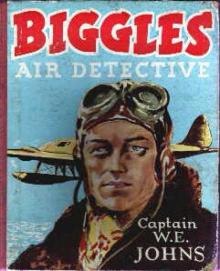 43 Biggles Air Detective
43 Biggles Air Detective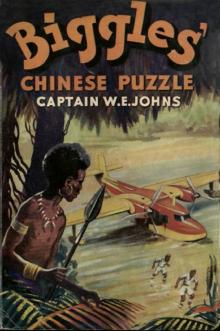 53 Biggles Chinese Puzzle
53 Biggles Chinese Puzzle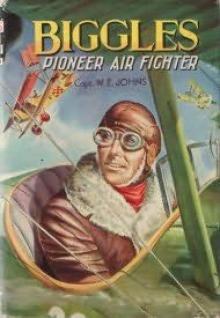 Biggles Pioneer Air Fighter (51)
Biggles Pioneer Air Fighter (51)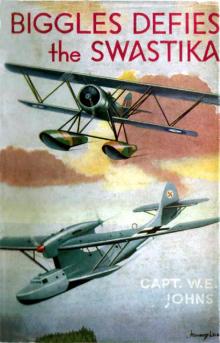 22 Biggles Defies The Swastika
22 Biggles Defies The Swastika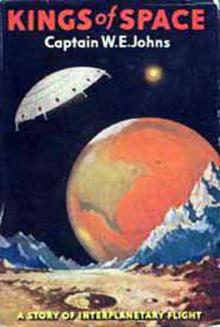 01 Kings Of Space
01 Kings Of Space